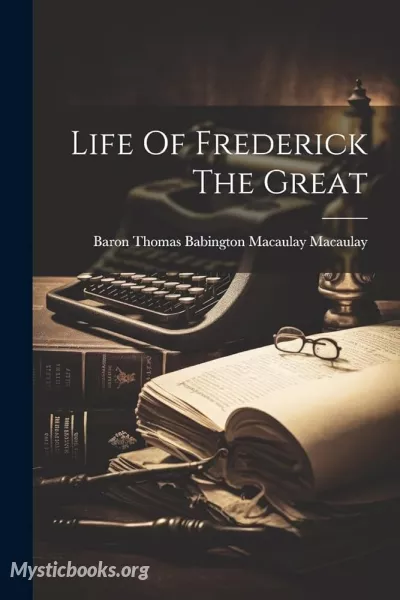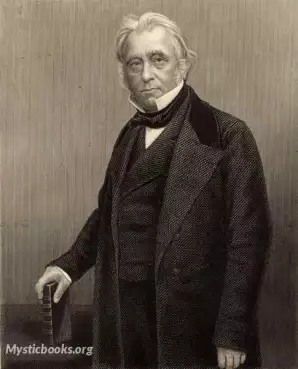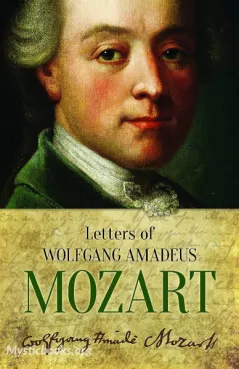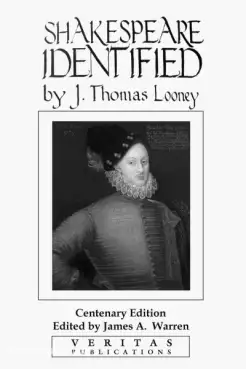
Frederic the Great
'Frederic the Great' Summary
In Thomas Babington Macaulay's captivating biography, "Frederic the Great," the reader is transported to 18th-century Europe, where a complex and enigmatic monarch, Frederic II of Prussia, emerges as a dominant force. Macaulay's masterful narrative interweaves historical events with insightful analysis, painting a vivid portrait of a king who shaped the course of European history.
Frederic's life was shaped by his father, King Frederick William I, a stern and demanding ruler who instilled in his son a deep sense of discipline and a lifelong devotion to Prussia's military prowess. Despite their differences, Frederic's admiration for his father and his desire to prove himself led him to embrace military training and develop a keen understanding of strategy and tactics.
Upon ascending to the throne in 1740, Frederic inherited a kingdom poised on the brink of greatness. With a shrewd political mind and an unwavering determination to secure Prussia's place among the great powers of Europe, Frederic embarked on a series of military campaigns that would redefine the continent's political landscape.
Macaulay vividly chronicles Frederic's battles, highlighting his brilliance as a tactician and his unwavering resolve in the face of adversity. The victories at Mollwitz, Chotusitz, and Rossbach cemented Frederic's reputation as a military genius, earning him the admiration of his contemporaries and the fear of his rivals.
Beyond the battlefield, Macaulay explores Frederic's complex personality and his contributions to Prussian society. He was a patron of the arts and sciences, reforming the judicial and administrative systems, and promoting religious tolerance. Despite his authoritarian tendencies, Frederic was a man of contradictions, deeply committed to Prussia's advancement while also seeking to cultivate a more enlightened and humane society.
"Frederic the Great" is a compelling and informative account of a remarkable monarch who left an indelible mark on European history. Macaulay's masterful prose and insightful analysis bring to life a man who was both a brilliant strategist and a complex and multifaceted individual. The book serves as a testament to Frederic's enduring legacy, a figure who continues to fascinate and intrigue historians and readers alike.
Book Details
Language
EnglishOriginal Language
EnglishPublished In
1859Genre/Category
Tags/Keywords
Authors

Thomas Babington Macaulay
England
Thomas Babington Macaulay, 1st Baron Macaulay was a British historian and Whig politician. He is considered primarily responsible for introducing the Western education system in India. He wrote extens...
Books by Thomas Babington MacaulayDownload eBooks
Listen/Download Audiobook
- Select Speed
Related books

The Letters of Wolfgang Amadeus Mozart, Vol. I by Wolfgang Amadeus Mozart
Step into the private world of one of history's greatest musical minds with "The Letters of Wolfgang Amadeus Mozart, Vol. I." This captivating collect...

Morning, Noon and Night by James Weldon Johnson
''Morning, Noon and Night'' is a collection of poetry by James Weldon Johnson, a prominent figure in the Harlem Renaissance. The poems reflect on them...

Letters of a Woman Homesteader by Elinore Pruitt Stewart
The writer of the following letters is a young woman who lost her husband in a railroad accident and went to Denver to seek support for herself and he...

Ma double vie, mémoires by Sarah Bernhardt
Dans ses mémoires, Sarah Bernhardt, une des plus grandes actrices de son temps, relate son enfance, sa famille, ses débuts dans le monde théâtral et s...

Great Artists: Volume 1 by Jennie Ellis Keysor
Biographies of Raphael Santi, Murillo, Peter Paul Rubens, and Albrecht Durer. This is a wonderful tool for art study as there are references for furth...

Henry II by Louis Francis Salzman
Henry II, one of England's most powerful and influential kings, is brought to life in this comprehensive biography. Salzman traces Henry's rise to pow...

Story of a Soul by Saint Therese of Lisieux
The Story of a Soul is an autobiography of Saint Thérèse of Lisieux, a French Carmelite nun who lived from 1873 to 1897. In it, she recounts her child...

Shakespeare Identified by Thomas Looney
That one who is not a recognized authority or an expert in literature should attempt the solution of a problem which has so far baffled specialists mu...

Some Articles About Mark Twain by Sarah Knowles Bolton
This book is a collection of four early magazine articles about Mark Twain, originally published in "Literature - An Illustrated Weekly Magazine" in 1...
Reviews for Frederic the Great
No reviews posted or approved, yet...
